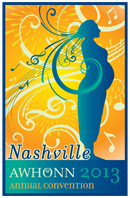Achieving Baby Friendly Status Through a National Collaborative
Title: Achieving Baby Friendly Status Through a National Collaborative
- Identify strategies to engage an interdisciplinary team of hospital's administrative, medical and nursing staff, lactation staff and other engaged stakeholders.
- Discuss approaches for providing mandatory education to staff within financially challenged settings.
- Describe an evidence-based staff and patient education tool to promote skin-to-skin practice that results in initiation of breastfeeding within one hour of birth.
The National Initiative for Children’s Healthcare Quality (NICHQ), working closely with Baby-Friendly USA, has formed a nationwide Collaborative titled Best Fed Beginnings. The Collaborative awarded participation to 90 hospitals. The goal of the Project is for hospitals to implement evidence-based quality improvements to their maternity care services resulting in increased breastfeeding support for mothers and their babies. Participation in this Collaborative will help hospitals achieve Baby-Friendly status. This program will describe the journey of Sharp Mary Birch Hospital for Women & Newborns in this Collaborative from the application process through actual designation.
Proposed change:
Involvement in the Collaborative will focus on applying the Ten Steps to Successful Breastfeeding as outlined by Baby-Friendly USA. Imperative to the success of this Collaborative is engaging an interdisciplinary team at the hospital including a mother from the community. Another essential component for success is the Collaborative hospital team’s attendance at three learning sessions over the 22 month Project. Opportunity to connect with other participating hospital teams will allow for sharing of best practice strategies, identifying lessons learned, overcoming common barriers and expediting the Baby-Friendly process of designation.
Implementation, outcomes and evaluation:
Immersion into the Collaborative began in June 2012. Established outcomes were identified and will be evaluated monthly during the Project: 1. 80% of staff caring for healthy mother/baby couplets will receive training on lactation support; 2. the infant feeding policy will be compliant with Baby-Friendly guidelines; 3. 100% of staff will complete documentation of pertinent breastfeeding information; 4. ongoing data collection will be automated with the electronic medical record; 5. all breastmilk substitutes and supplies will be purchased; and 6. 90% of healthy mother/baby couplets will be exclusively breastfed from birth to discharge.
Implications for nursing practice:
Literature is replete with the extensive benefits of breastfeeding for mothers, infants, and society. Numerous studies also indicate that exclusive breastfeeding during the early postpartum stay is one of the most influential indicators on duration of breastfeeding after discharge. Hospitals that are Baby-Friendly designated have a demonstrated increase in exclusive breastfeeding rates compared with non-designated hospitals. Participating on a national Collaborative will assist with increasing exclusive breastfeeding rates through culturally changing the breastfeeding practices for health care providers and consumers. Subsequently, this will assist the entire United States in meeting the Healthy People 2020 goals.
Keywords: exclusively breastfed; Baby Friendly; Best Fed Beginnings Collaborative

